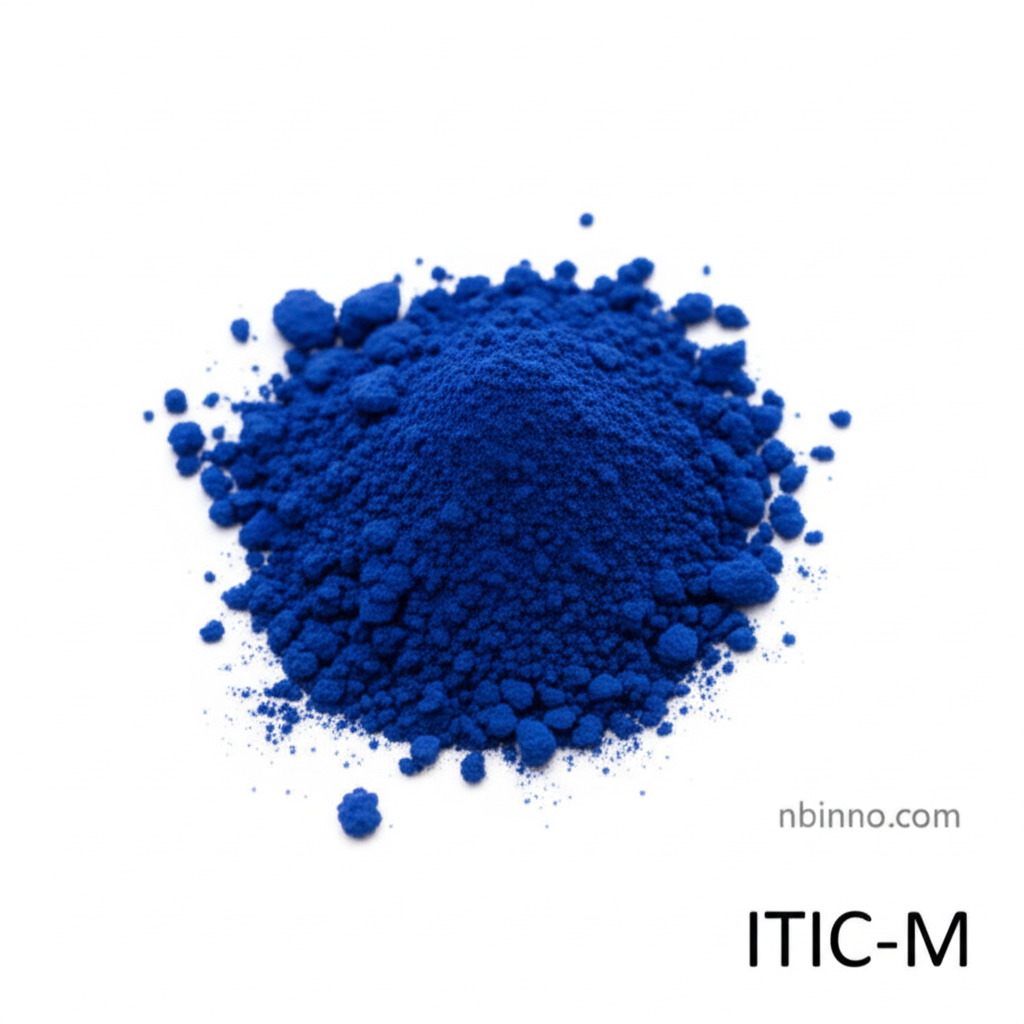Advanced Non-Fullerene Acceptor for High-Efficiency Polymer Solar Cells: ITIC-M Properties and Applications
Discover the cutting-edge non-fullerene acceptor ITIC-M, optimizing polymer solar cell performance.
Get a Quote & SampleProduct Core Value

ITIC-M
ITIC-M, a highly efficient non-fullerene acceptor, is pivotal in advancing polymer solar cell (PSC) technology. Its unique molecular design offers superior light absorption and optimized energy levels, contributing to higher power conversion efficiencies.
- Leveraging ITIC-M HOMO LUMO levels for precise energy alignment in organic photovoltaic materials.
- Explore the ITIC-M chemical structure and its role in non-fullerene acceptor for OPV applications.
- Understand the ITIC-M properties for PSCs, enabling next-generation solar energy solutions.
- Investigate the ITIC-M synthesis and application in the field of organic solar cell materials development.
Key Advantages
Enhanced Efficiency
Achieve superior power conversion efficiency in polymer solar cells by utilizing the optimized energy levels of ITIC-M, a key factor in non-fullerene acceptor for OPV advancements.
Broad Spectral Absorption
Benefit from the strong and broad absorption spectrum of ITIC-M, from visible to near infrared, crucial for maximizing light harvesting in organic photovoltaic materials.
Improved Solubility & Miscibility
The presence of methyl groups in the ITIC-M chemical structure enhances its solubility and miscibility, simplifying processing and improving morphology for high-performance organic semiconductors.
Key Applications
Organic Photovoltaics (OPV)
ITIC-M is a leading non-fullerene acceptor used in the development of high-efficiency polymer solar cells, contributing to advanced electronic materials for energy.
Organic Field-Effect Transistors (OFET)
The exceptional electronic properties of ITIC-M also make it suitable for OFET applications, pushing the boundaries of organic semiconductor performance.
Organic Light-Emitting Diodes (OLED)
As an advanced optoelectronic material, ITIC-M finds application in OLEDs, contributing to the next generation of display and lighting technologies.
Materials Science Research
ITIC-M serves as a critical material for researchers investigating organic solar cell materials development and charge transport mechanisms.
